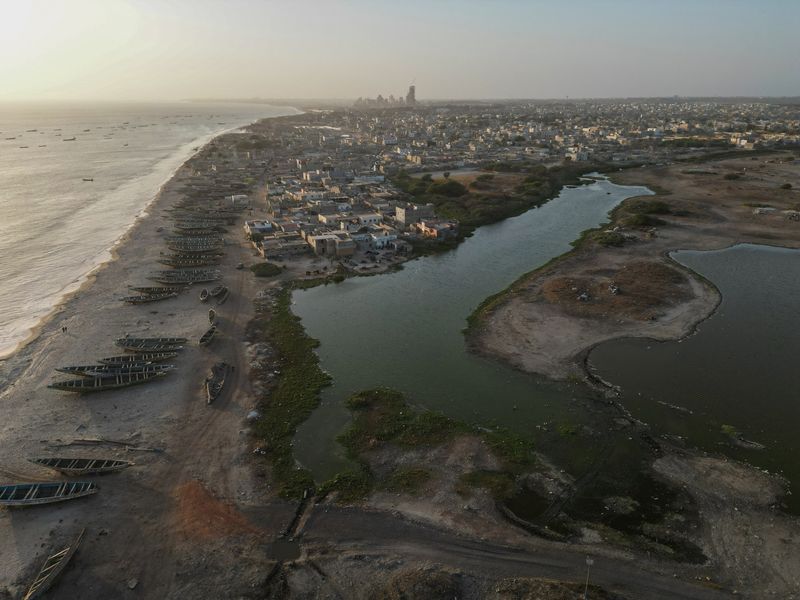By Duncan Miriri
NAIROBI (Reuters) -Senegal’s dollar government bonds fell on Friday after a government audit revealed larger debt and deficit figures than the previous government reported, Tradeweb data showed.
Newly elected President Bassirou Diomaye Faye, who ordered the audit, accused the previous government of releasing false figures but underlined the difficult task ahead for the West African country, which is already struggling with slower economic growth .
“The announcement sounds like a credit-negative event,” said Evghenia Sleptsova, senior emerging markets economist at consultancy Oxford Economics.
Dollar bonds fell more than 2 cents in early trade before paring losses to bid about 1.3 cents lower between 73.01 and 85.52 cents on the dollar by 1200 GMT.
The International Monetary Fund, which has a $1.9 billion rescue program with Senegal, said the government had shared initial audit findings and was working with them to determine appropriate next steps.
The audit showed a deficit of more than 10% at the end of 2023, in contrast to the around 5% reported by the previous government, Economy Minister Abdourahmane Sarr said late on Thursday.
Meanwhile, government debt averaged 76.3% of GDP, up from the previously reported 65.9%, due to higher-than-published government deficits, according to the audit.
Sarr said the worrying figures and fears of breaching IMF rules prevented the government from requesting money from the IMF that could have been disbursed in July.
Abdoulaye Ndiaye, professor of macroeconomics and public finance at New York University’s Stern School of Business, said the audit, unprecedented in Senegal, underlined the need for “courageous choices.”
“The results are disturbing and there must be a thorough legal investigation,” he said.
The IMF had already lowered Senegal’s growth forecast for this year and warned of a wider budget deficit due to slow revenue growth.

Earlier this month, Faye called early parliamentary elections, scheduled for November 17, to try to break the impasse over a new budget and efforts to reduce government waste.
Still, emerging oil production, which started in June, and gas production expected by the end of the year could boost public finances.


